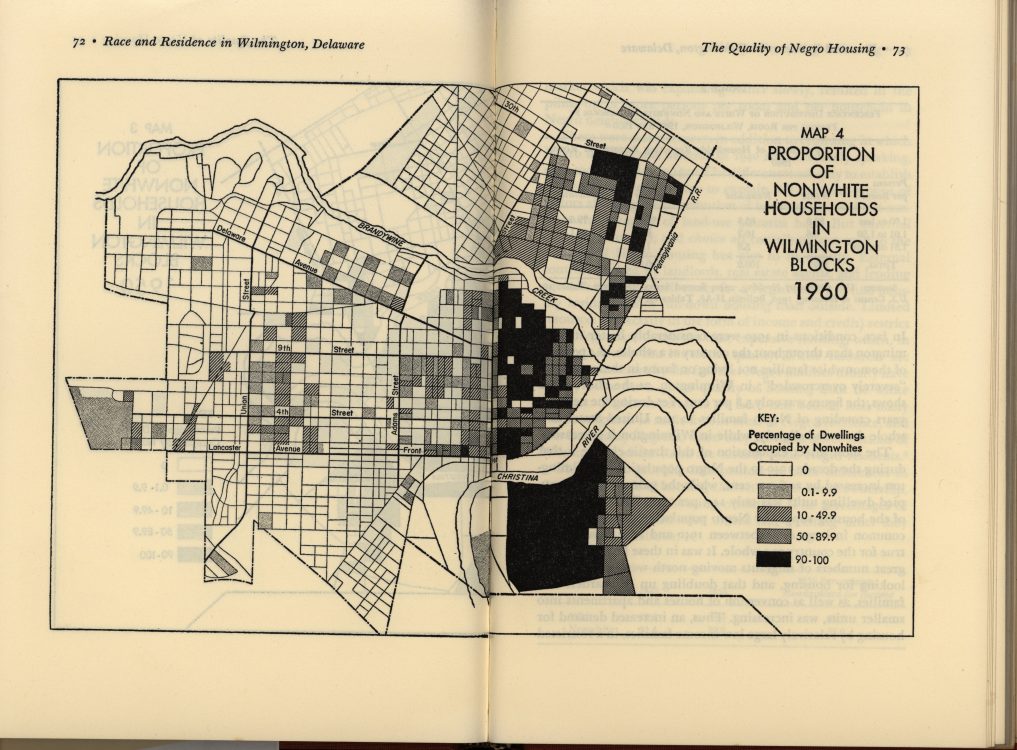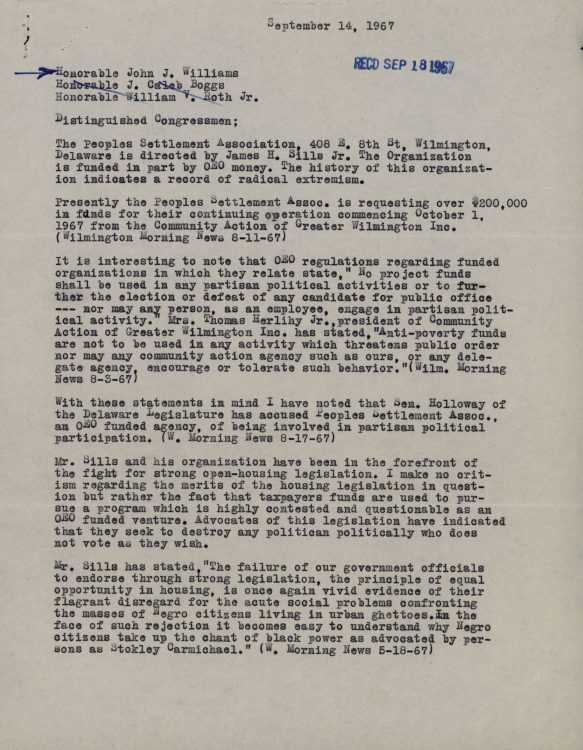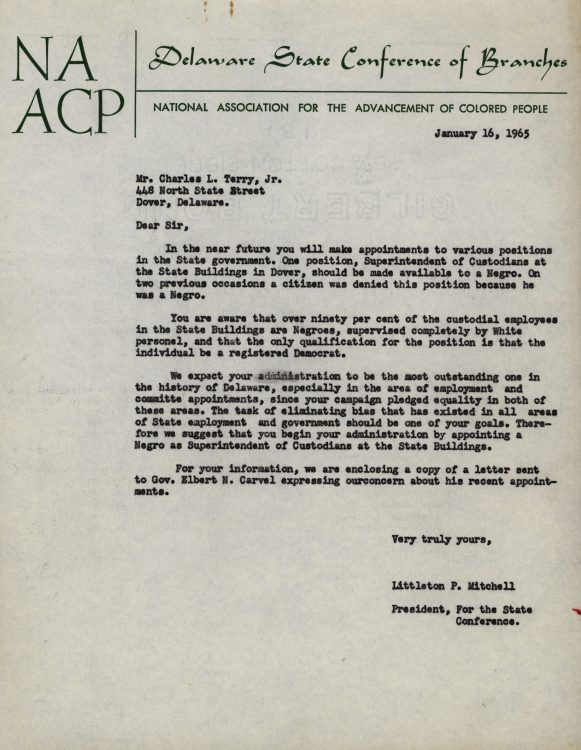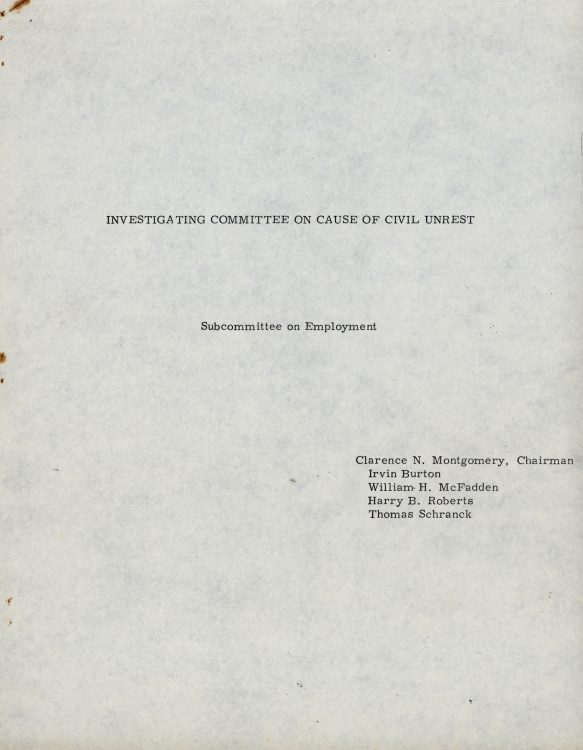The 1960s marked a period of divisive social and political change in the United States, with perspectives particularly divergent across race and age. The impact of Dr. Martin Luther King Jr.’s message of equality and President Lyndon B. Johnson’s vision of the “Great Society” drove national debate on the future of the country. Congress faced issues of race, poverty, and the war in Vietnam, its members disagreeing on how to respond to the needs and rights of all citizens. Government programs, many administered by the Office of Economic Opportunity (OEO), provided funding for local, state, and federal anti-poverty initiatives to address and expand opportunities for employment, education, and fair housing.
These national conversations were lived out in Delaware. Racial inequality in Delaware persisted throughout the 1960s, especially in Wilmington. The construction of I-95 at the start of the decade gutted neighborhoods and white migration to the suburbs created large pockets of low-income, high unemployment, predominantly African American communities, especially in the areas of Southbridge, West Center City (“The Valley”) and Northeast Wilmington.





